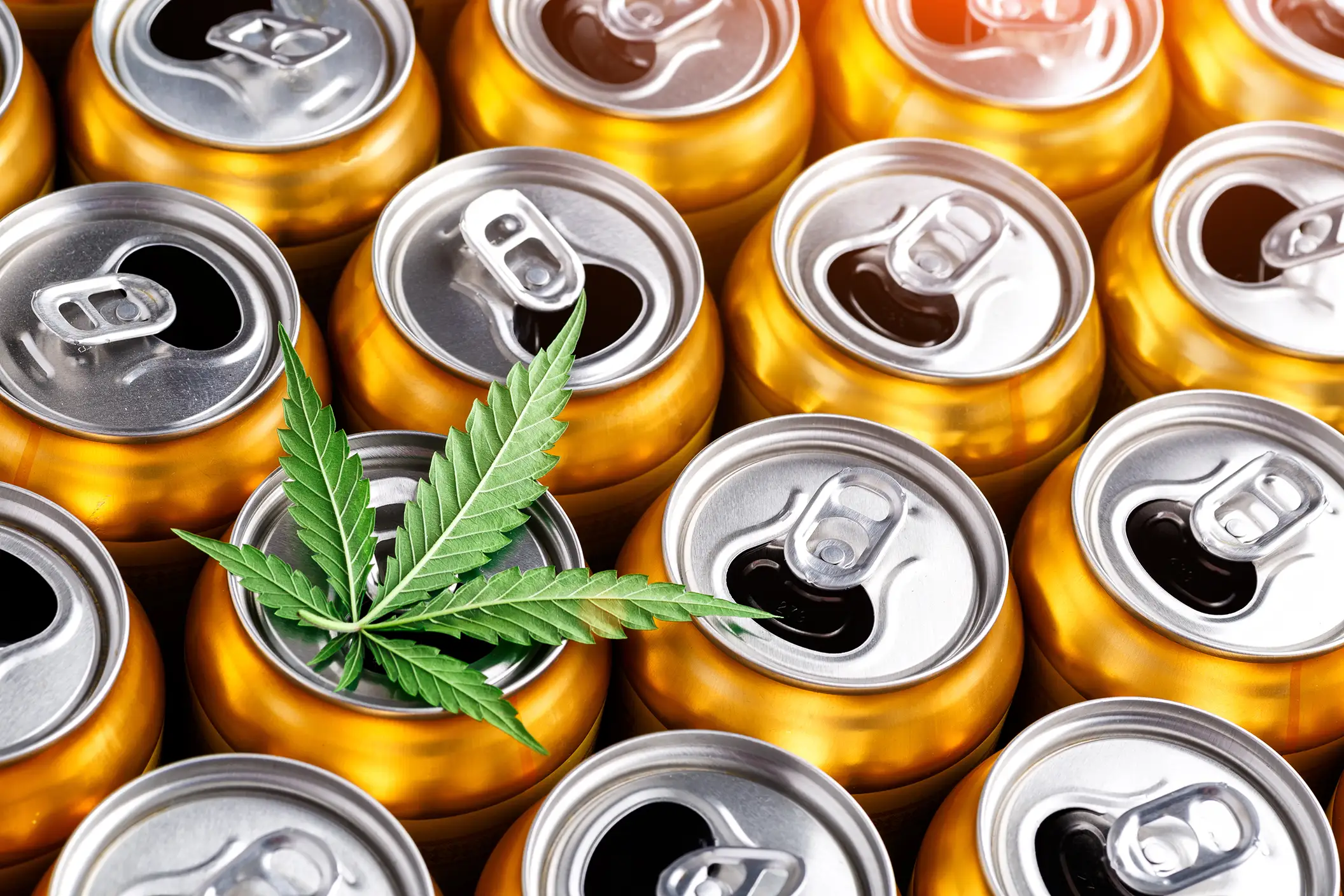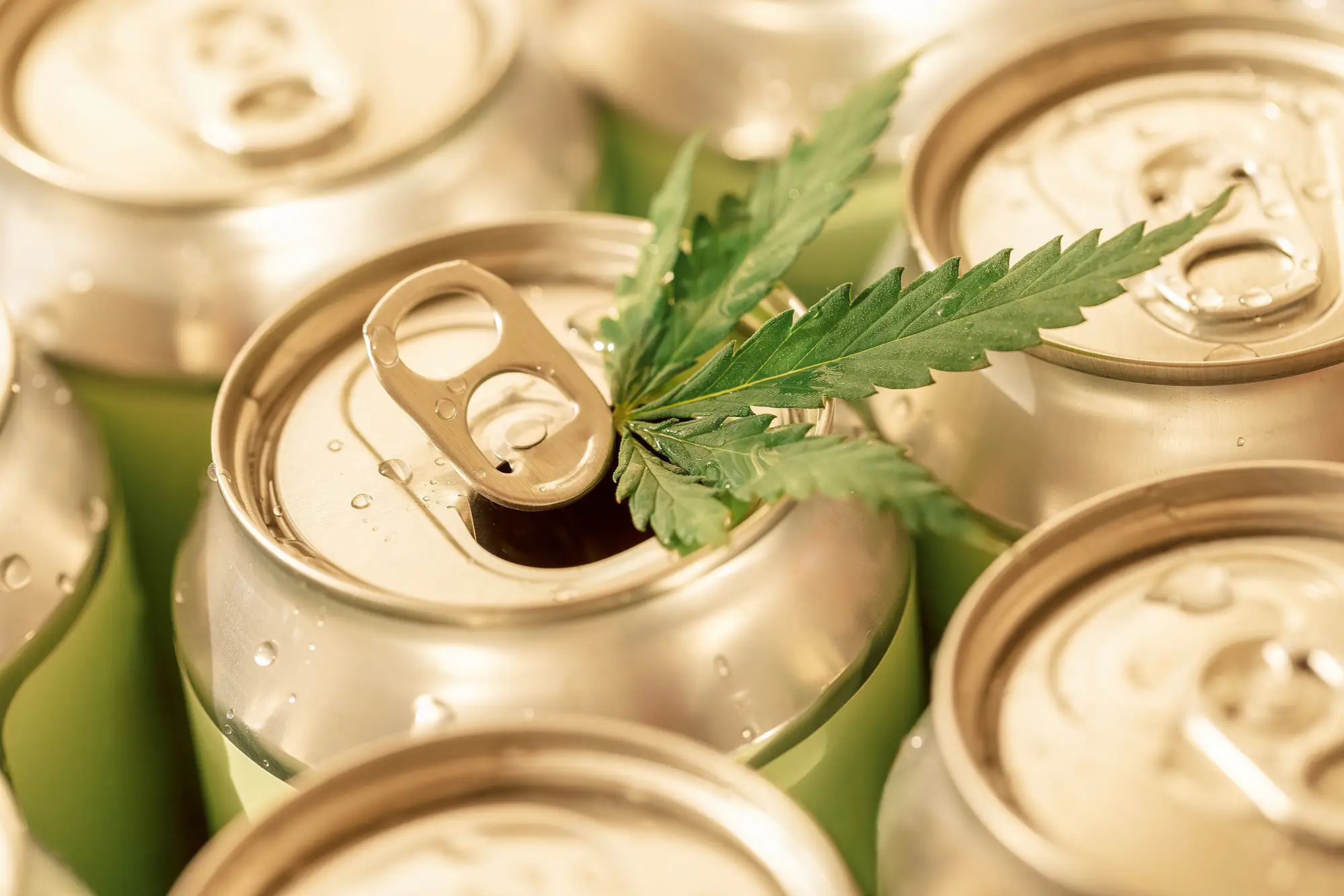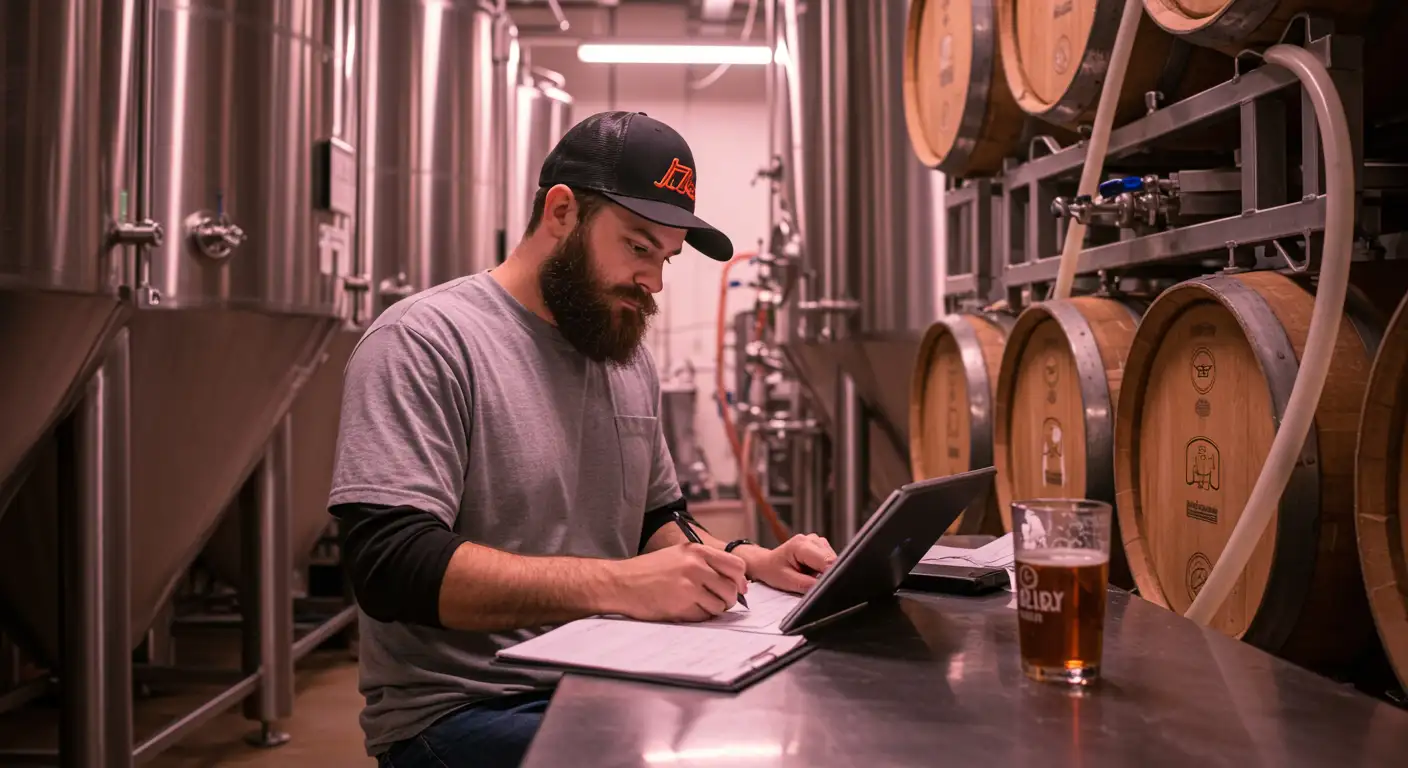
The landscape for hemp-derived THC in beverages is changing fast — and if you’re a brewer or beverage producer exploring hemp infusions or low-dose cannabinoid beverages, you need to understand what’s coming. A recent federal provision has effectively closed the loophole in the Agriculture Improvement Act of 2018 (aka the 2018 Farm Bill) that allowed hemp-derived beverages with psychoactive compounds to proliferate.
In short: many products that were once legal under the “hemp” umbrella are now facing prohibition or severe regulation. For brewers and beverage producers who may have invested in hemp-THC seltzers, beers, or other infused drinks, the implications are substantial.
This article breaks down what the bill does, how it affects beverage producers, what steps you should take, and frequently asked questions specific to the brewing / beverage space.
Affordable, Industry-Leading Brewery Software
What the Bill Does (Key Changes)

Here’s a summary of the major changes in the new federal legislation concerning hemp-derived THC products:
- It redefines “hemp” at the federal level to exclude products containing more than a trace amount of THC (including its acidic form, THCA) or containing synthetically manufactured cannabinoids.
- The legislation sets a cap at 0.4 milligrams of total THC (or THC equivalents) per container for hemp-derived cannabinoid products.
- It closes the “THCA loophole” (i.e., THCA that decarboxylates to Δ-9-THC) by treating total tetrahydrocannabinols concentration (including THCA) as the basis for legality.
- It imposes a one-year “grace period” (365 days) for compliance once the law is enacted (or from its effective date) — meaning many current products will have limited shelf life under the old rules.
- It effectively overrides state laws that had more permissive treatment of hemp-derived THC beverages, establishing a federal standard that may invalidate state-level hemp-THC beverage regulations.
Why Brewers & Beverage Producers Should Care

If you’re a brewery or beverage company involved (or considering involvement) in hemp-infused or THC-adjacent drinks, here’s why this matters:
- Product categorization risk: Beverages that were marketed as “hemp-derived THC” may now be reclassified as controlled substances rather than legal hemp solutions, if they exceed the new thresholds. This exposes you to compliance risk, recalls, or shutdown.
- Market instability: The existing hemp-THC beverage segment has been relied on by craft breweries and small producers to diversify beyond traditional beer, especially as consumption patterns shift. With the new law, that path may be blocked.
- Supply chain and formulation challenges: Adjusting formulations to meet new limits (0.4 mg THC/container) is a massive change vs many current drinks that contain 5–10 mg or more of THC. Reformulating, retesting, relabeling and recall risk all increase.
- Regulatory burden and downstream risk: You may face questions from investors, distributors, retailers, and regulators about compliance, especially if your products straddle the hemp/THC line.
- Brand reputational exposure: If your beverage is marketed as containing psychoactive hemp-derived compounds and then becomes illegal, it creates consumer trust issues and potential legal exposure.
Immediate Impacts & Industry Risks
Here are some practical repercussions and risk factors for brewers and beverage producers:
- Shortened runway: The one-year grace period means you must act quickly. If you have existing inventory of hemp-THC beverages, you may need to liquidate, reformulate or pivot.
- Inventory and product obsolescence: Products in development, or currently on shelf, may become non-compliant. Without action, you could carry obsolete SKUs.
- Testing and verification: New law emphasizes “total THC” including THCA and other cannabinoid equivalents. Beverage producers must ensure lab testing verifies product dosage, container caps, and compliance.
- Distribution and banking: Because the federal definition changes, banks and distributors may become wary of handling hemp-THC beverages, increasing friction or cost in beverage logistics.
- Competitive landscape shift: Some states may respond with tighter regulation or bans. National brands and craft brewers may diverge significantly in approach. Those who act early to pivot could gain first-mover advantage.
- Cost implications: Reformulation, legal review, testing, labeling redesign — all of these cost money and time. For small craft brewers, the impact may be particularly acute. Indeed, one report noted:
Strategic Considerations for Your Business

Given the evolving regulatory environment, what should brewers and beverage producers do?
- Assess your product portfolio: Identify any beverage with hemp-derived THC (including minor cannabinoids) or even hemp-adjacent claims. Determine whether it complies with the new 0.4 mg THC/container cap (or whatever final rule emerges).
- Consider reformulating: If your beverage currently contains more than the new limit, redesign the formulation—either eliminate the THC component or reduce it to legal levels (if possible).
- Labeling and dosage transparency: Ensure your beverage prominently discloses cannabinoid content, dosage per container, serving size, and complies with whichever state & federal labeling rules apply.
- Legal & regulatory review: Engage legal counsel with experience in hemp/cannabis beverages. The changing definition of “hemp” creates risk for inadvertent classification as a controlled substance.
- Supply chain audit: Evaluate your suppliers of hemp extracts, minor cannabinoids, flavorings. Ensure they can certify compliance with new federal definitions (e.g., not using synthetic cannabinoids excluded by the law).
- Communication with retailers & distributors: Inform your downstream partners of the regulatory changes, so they are aware of potential shifts in product availability, reformulation timelines, or status of your SKUs.
- Scenario planning: Develop backups—such as a non-THC version of the beverage, or pivot to non-infused hemp/CBD variants (if applicable and legal) or to traditional beer/alkohol-free beers.
- Monitor state-level regulation: Since states will adjust their rules in response to the federal change, keep an eye on state alcohol and cannabis regulations, licensing requirements for hemp-THC beverages, and how they treat beverage alcohol vs hemp-THC.
- Marketing positioning: With regulatory changes, you may want to reposition your messaging (e.g., emphasizing “non-intoxicating hemp wellness beverage” rather than “low dose THC buzz”), if relevant.
Frequently Asked Questions — THC / Hemp Bill (Brewers & Beverage Producers)
When does this new law take effect?
The bill includes a 365-day grace period for compliance from its enactment or effective date. Use that window to audit inventory, test products, and plan reformulations or withdrawals.
Does the law ban all hemp-derived cannabinoids in beverages?
Not necessarily all cannabinoids, but the law is restrictive. It excludes synthetic cannabinoids and imposes very low THC limits (measured as total THC including THCA). Non-intoxicating hemp/CBD products may remain legal if they meet the new thresholds and definitions.
Does this law override state laws that allow hemp-THC beverages?
Yes — the federal definition of hemp will generally preempt state laws in cases where state rules conflict. Products legal under state law may still be federally non-compliant under the new definition.
My brewery sells a hemp-THC seltzer with 5 mg THC per can. What should I do?
Begin planning immediately to reformulate or withdraw the product. A 5 mg THC dose far exceeds the new very low-per-container limit and will likely be non-compliant after the grace period, exposing you to legal and regulatory risk.
What happens if my beverage becomes non-compliant? Will it be treated as a controlled substance?
If a hemp product no longer meets the federal definition of hemp, it may be treated similarly to marijuana under federal law, which could expose manufacturers, distributors, and retailers to significant legal risk.
Are alcohol beverage producers subject to these rules?
Yes. Any producer—including traditional breweries or beverage companies—making beverages that contain hemp-derived THC will need to comply with the federal hemp definition and THC limits, though jurisdictional licensing may also apply.
Can I still use CBD or non-intoxicating hemp ingredients?
Possibly — non-intoxicating CBD or hemp ingredients may remain permissible if the finished product meets the federal hemp definition, stays under THC/THCA thresholds, and contains no excluded synthetic cannabinoids. Verify with laboratory testing and legal counsel for your jurisdiction.
What about micro-dose THC beverages (e.g., 2–3 mg)?
Even 2–3 mg micro-dose beverages may exceed the new per-container limit. The federal cap is far lower than typical micro-dose formulations, so plan to reformulate or pivot to non-THC alternatives.
What should I be telling my supply chain, investors and partners?
Be transparent about regulatory risk. Tell partners that hemp-THC SKUs may require reformulation or sunset, that you are testing and auditing inventory, and that you will share timelines for transitions or withdrawals. Early communication reduces downstream surprises.
Wrap Up
For the craft beer and beverage world, the recent federal hemp/THC legislation marks a major shift. What was once a promising growth segment — hemp-derived THC beverages — is now facing near-prohibition at the federal level. Brewers and beverage producers must act promptly: audit their product lines, review formulations and labeling, communicate with partners, and decide whether to pivot or reformulate.
While the regulatory environment will likely continue to evolve (with state-level responses, further federal guidance, and potential litigation), the time to strategize is now. For beverage producers who lean into compliance and adapt quickly, there remains opportunity — just not for business as usual.


